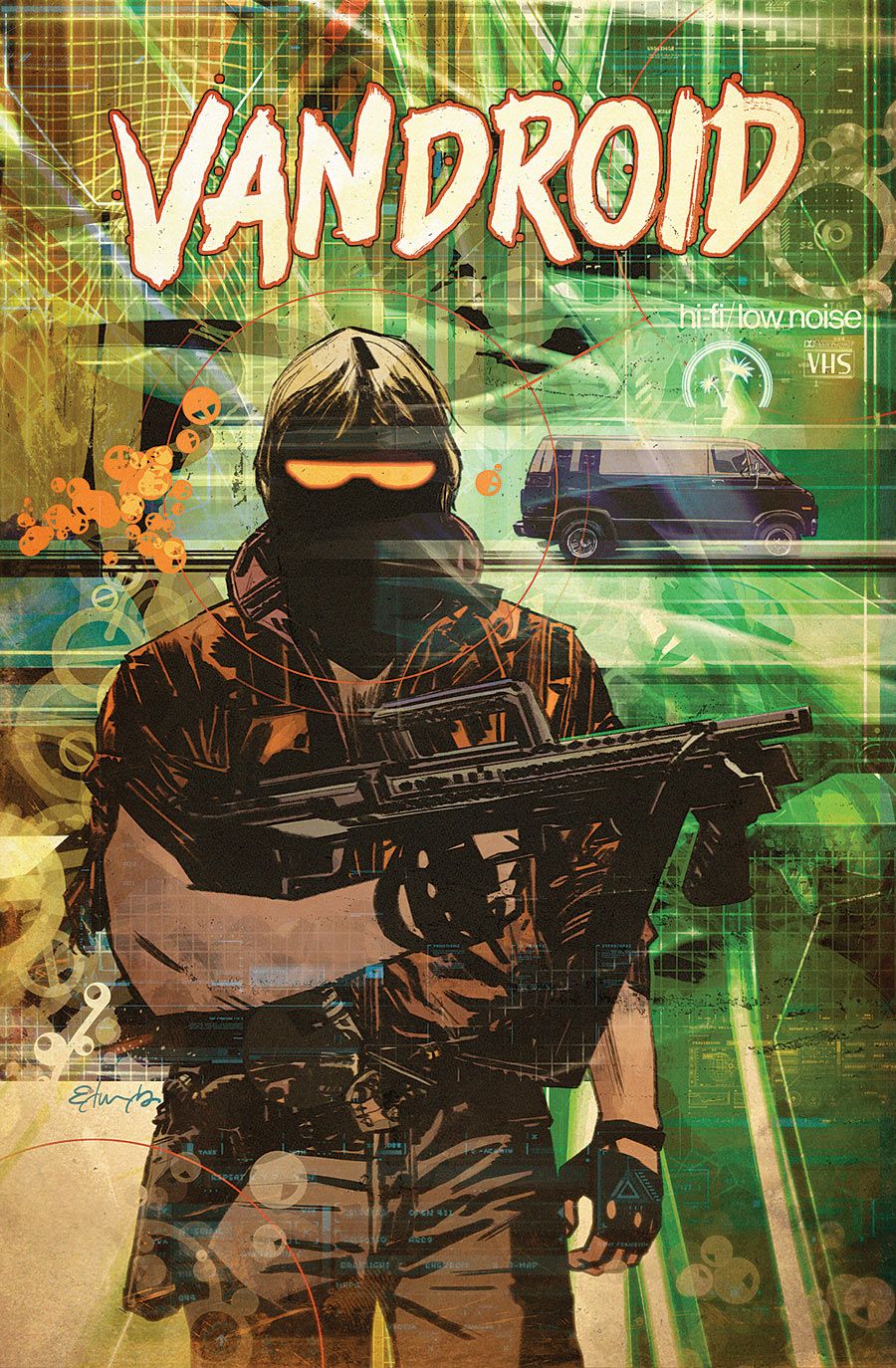"Vandroid" #1, from writers Tommy Lee Edwards and Noah Smith, with art from Dan McDaid, revisits the 1980s, picking up the pieces of a fading fad while using hindsight to piece together the evolution of technology. Set in 1984, this comic series delivers the realization of a film that never materialized.
Edwards and Smith tell the tale of the intersecting fates of Taylor Grey, a programmer with the gumption to craft an artificial intelligence, and Chuck Carducci, a washed up, drugged out van artist who only wanted to create. The latter is still plying his craft, albeit unsuccessfully and on a smaller scale, spinning around the drain when "Vandroid" #1 finds him. Grey, meanwhile, has his project yanked out from underneath him due to its dangerous nature. Not satisfied with the answers he gets, Grey decides to take his project and go. Which leads to the intersection of the two characters coming back together. The writers' characters aren't very deep, but their personalities mechanically fit the plot in order to move it forward.
McDaid's art is dark and cartoony. The darkness suits the woebegone nature of "Vandroid" #1 and the doom the creation brings with it, but it also muddies up the storytelling. The scene in Chuck's garage, where things get out of hand is especially muddy. I'm unsure how the van gets out of control, only that it does get out of control. Again, it suits the plot to continue forward motion, but it lacks purpose other than simply to be. McDaid's characters are distinct and emotive and his panels packed with detail. He just needs a bit of clarity to guide the details and open up the storytelling. For a story reliant upon technology, the details need to be sharper and more angular.
The computer details in "Vandroid" #1 seem out of place for a story set in 1984. Developing a machine with sufficient intelligence to be considered a threat is reminiscent of "War Games," but the machines here certainly seem uptech from where I remember 1984 and certainly smaller and more colorful. Granted, thirty years of hindsight does blur lines a bit and disbelief does need for be suspended for comics, but the efficiency of the tech is distracting throughout the tale. It needs to be this efficient for the story to exist, but there is room in this tale for the tech to streamline as the story progresses. Instead, it goes from masterfully streamlined (how would an A.I. even fit on a floppy with only kilobytes of storage?) to insanely streamlined, even for comic book tech. Yes, comic books are where Ultron and Red Tornado exist, but Edwards and Smith appear to be trying to give "Vandroid" #1 a tech-horror spin without providing any true evolution to the rise of the machine.

